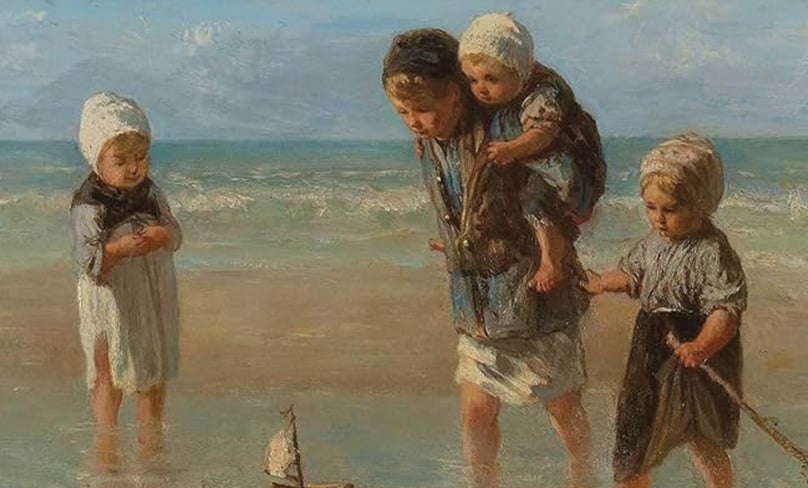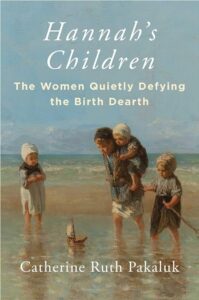
Hannah’s Children is a very unexpected book, by a very unexpected author. This book is a serious and punchy piece of academic research but is also gloriously readable. You can’t say that about many books by Harvard-educated professors of economics.
Catherine Pakaluk is an associate professor of social research and economic thought at the Catholic University of America, Washington DC. She is also the mother of eight children, who graduated with her doctorate at around child number six.
Remember how having a large family was supposed to ruin your career? Like US Supreme Court judge Amy Coney Barrett, Pakaluk was wise enough to marry a man who knew how to bring up a large family—in Pakaluk’s case, a fellow Harvard economics PhD.
But Michael Pakaluk was also a widower whose first wife Ruth died of breast cancer at age 41. He already had six children, and Catherine married him within a year of Ruth’s death. I imagine that was a steep learning curve for her.
So it’s partly from her own experience, from meeting other women like (and unlike) herself, and her economics background, that Pakaluk chose to carry out a qualitative research study with mothers who have large families. The core question she wants to ask is: Why?
Pakaluk and her research team (all women) interviewed 55 women with more than five children in 10 different parts of the US. Their ages ranged from 32 to 71, and the largest number of kids in one family was 15. They also ranged in income from very well-off to living from week to week on one paycheck.
A quarter were non-white, and all of them belonged to some form of religious group (mostly Christian and Jewish). Less than half came from families of five or more children themselves.

Bottom line? The women all thought that the value of children proved itself over time. It was quite literally worth it for what they got in return. But what they got in return was not just an economic benefit.
It turns out that when families decide to get bigger, they think about all sorts of costs and benefits that are subjective and individual. These are very powerful drivers about whether a marriage is open to life or not.
The real cost-benefit equation is based on shared ideas about the value of children. But this is always understood against the backdrop of a bigger set of values that are directing their lives and their marriages.
Yes, you make sacrifices, and you miss out on some things. But the women all saw loss of those things as compensated by a bigger gain. The reason for missing out was much more valuable than the loss itself.
The book is unflinching about the challenges of raising large families, especially the financial cost and the impact on health, identity, and individual marriages. It is honest, clear-eyed, and unsentimental.
As you’d expect from an economist, Pakaluk is very frank about the demographic winter in the US and other Western countries. She’s also clear on how we’re struggling to provide a good standard of aged care because of the rapid decline in the population that would otherwise be providing and paying for that care.
Some of the stories will make you cry, but in a good way. At least one-fifth of all the women said that a baby had brought healing or reprieve for a sibling or parent who was going through problems.
Hannah’s Children has a lot to offer in the way of critique of “pro-natalist” government policies that are trying to appeal to the wrong set of drivers for having more children.
It also offers enormous validation for all those Catholic couples who responded generously to Pope Paul VI’s encyclical Humanae Vitae. It’s the kind of book I hope our church leadership would also read, especially anyone working in a diocesan office or agency for marriage and family life.
Catherine Pakaluk, Hannah’s Children: The Women Quietly Defying the Birth Dearth. Regnery Gateway, 2024. HC $48.39, Kindle $24.99.
